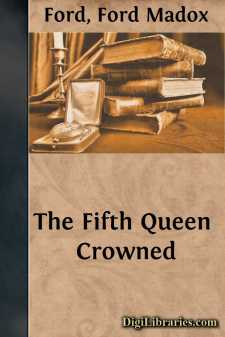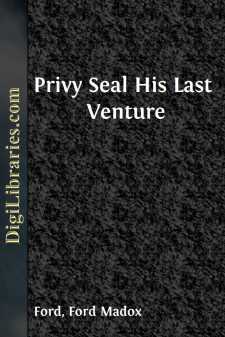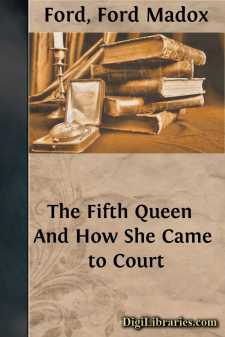Categories
- Antiques & Collectibles 13
- Architecture 36
- Art 48
- Bibles 22
- Biography & Autobiography 813
- Body, Mind & Spirit 142
- Business & Economics 28
- Children's Books 16
- Children's Fiction 13
- Computers 4
- Cooking 94
- Crafts & Hobbies 4
- Drama 346
- Education 46
- Family & Relationships 57
- Fiction 11829
- Games 19
- Gardening 17
- Health & Fitness 34
- History 1377
- House & Home 1
- Humor 147
- Juvenile Fiction 1873
- Juvenile Nonfiction 202
- Language Arts & Disciplines 88
- Law 16
- Literary Collections 686
- Literary Criticism 179
- Mathematics 13
- Medical 41
- Music 40
- Nature 179
- Non-Classifiable 1768
- Performing Arts 7
- Periodicals 1453
- Philosophy 64
- Photography 2
- Poetry 896
- Political Science 203
- Psychology 42
- Reference 154
- Religion 513
- Science 126
- Self-Help 84
- Social Science 81
- Sports & Recreation 34
- Study Aids 3
- Technology & Engineering 59
- Transportation 23
- Travel 463
- True Crime 29
The Fifth Queen Crowned
by: Ford Madox Ford
Categories:
Description:
Excerpt
THE MAJOR CHORD
'The Bishop of Rome——'
Thomas Cranmer began a hesitating speech. In the pause after the words the King himself hesitated, as if he poised between a heavy rage and a sardonic humour. He deemed, however, that the humour could the more terrify the Archbishop—and, indeed, he was so much upon the joyous side in those summer days that he had forgotten how to browbeat.
'Our holy father,' he corrected the Archbishop. 'Or I will say my holy father, since thou art a heretic——'
Cranmer's eyes had always the expression of a man's who looked at approaching calamity, but at the King's words his whole face, his closed lips, his brows, the lines from his round nose, all drooped suddenly downwards.
'Your Grace will have me write a letter to the—to his—to him——'
The downward lines fixed themselves, and from amongst them the panic-stricken eyes made a dumb appeal to the griffins and crowns of his dark green hangings, for they were afraid to turn to the King. Henry retained his heavy look of jocularity: he jumped at a weighty gibe—
'My Grace will have thy Grace write a letter to his Holiness.'
He dropped into a heavy impassivity, rolled his eyes, fluttered his swollen fingers on the red and gilded table, and then said clearly, 'My. Thy. His.'
When he was in that mood he spoke with a singular distinctness that came up from his husky and ordinary joviality like something dire and terrible—like that something that upon a clear smooth day will suggest to you suddenly the cruelty that lies always hidden in the limpid sea.
'To Cæsar—egomet, I mineself—that which is Cæsar's: to him—that is to say to his Holiness, our lord of Rome—the things which are of God! But to thee, Archbishop, I know not what belongs.'
He paused and then struck his hand upon the table: 'Cold porridge is thy portion! Cold porridge!' he laughed; 'for they say: Cold porridge to the devil! And, since thou art neither God's nor the King's, what may I call thee but the devil's self's man?'
A heavy and minatory silence seemed to descend upon him; the Archbishop's thin hands opened suddenly as if he were letting something fall to the ground. The King scowled heavily, but rather as if he were remembering past heavinesses than for any present griefs.
'Why,' he said, 'I am growing an old man. It is time I redded up my house.'
It was as if he thought he could take his time, for his heavily pursed eyes looked down at the square tips of his fingers where they drummed on the table. He was such a weighty man that the old chair in which he sat creaked at the movement of his limbs. It was his affectation of courtesy that he would not sit in the Archbishop's own new gilded and great chair that had been brought from Lambeth on a mule's back along with the hangings. But the other furnishings of that Castle of Pontefract were as old as the days of Edward IV—even the scarlet wood of the table had upon it the arms of Edward IV's Queen Elizabeth, side by side with that King's. Henry noted it and said—
'It is time these arms were changed....





